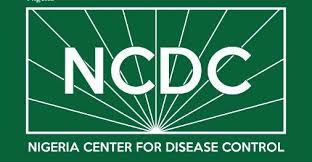The Nigeria Centre for Disease Control and Prevention (NCDC) has taken another strategic step toward strengthening the country’s health security architecture with the certification of a new cohort of PALS Multiplicators—elite public health professionals specially trained to integrate social and behavioral sciences into disease prevention and control efforts.
The Participatory Approach for Learning in Systems (PALS) initiative is designed to bridge the gap between knowledge and practice in health systems by promoting communication, collaboration, and behavior change within healthcare settings.
Speaking during the certification ceremony on Friday in Abuja, the Director-General of the NCDC, Dr. Jide Idris, described the milestone as a quiet but significant transformation in the agency’s approach to infectious disease preparedness and response.
He said the initiative formed part of the Nigeria Capacity Development for Infection Prevention and Control (NiCaDe-IPC) project, being implemented in collaboration with the Robert Koch Institute (RKI).
“For too long, we have relied mainly on technical and biomedical interventions.
The PALS initiative represents a paradigm shift — it moves beyond clinical expertise to include behaviour, communication, and human interactions as key drivers of public health outcomes,” Idris said.
He explained that the project had already trained 140 change agents in 35 health facilities and 41 state trainers across five of Nigeria’s six geopolitical zones.
“The newly certified Multiplicators represent the highest level of capacity development under the programme and are expected to serve as mentors and advocates for systemic change,” he added.
Idris expressed gratitude to the Robert Koch Institute and the Global Fund, which supported the training activities through its C19RM mechanism, for their collaboration in building a more resilient and effective public health system.
He noted that while traditional metrics such as infection rates remained important, success should also be measured by qualitative improvements, including better teamwork, communication, and collaboration within the health system.
“The true impact of PALS may not always be reflected on a chart. Its success lies in cultural shifts, improved relationships, and sustainable behavioural change across all levels of care,” he said.
The NCDC boss further announced that the PALS initiative had been incorporated into Nigeria’s National Infection Prevention and Control Programme and Strategy, with plans underway to scale up the approach nationwide.
He urged partners and stakeholders to invest in infection prevention and control, describing it as “an investment in collective security.”
“We must be open to new metrics, new methods, and new ways of thinking. The time has come to redefine what is possible in public health,” Idris stated.
The event brought together representatives from the health sector, academia, and development partners.


